What I’m thinking about
I have spent the week with one eye on my inbox and the other on the news.
This week, I was informed that five more employees at my mother’s memory care facility were diagnosed with COVID-19, bringing the total number of cases to six, and I am increasingly worried about her well-being.
I have also watched dozens of videos from the protests that have followed George Floyd’s death. Each clip has brought more worry about how to keep Black Americans safe and deliver meaningful justice to the Black community.
I feel torn between these two urgent and important concerns – one private and the other public – and although I’m sure a clear path forward will emerge, I don’t see one yet. In the meantime, here is what I intend to do:
I will continue to use this newsletter to amplify the perspectives of Black caregivers, journalists, and health care providers. I will also use it to share information about how systemic inequality impacts Black caregivers and their families – like this article from Issue 2 about how nursing homes with a significant number of Black residents are twice as likely to have a COVID-19 outbreak.
Outside of this space, I will continue to learn about complex issues like criminal law reform, racial justice, and free speech from organizations like the ACLU and the NAACP and spend more of my time and money in ways that contribute to sustained social and political change for the Black community.
Talk soon,
Libby
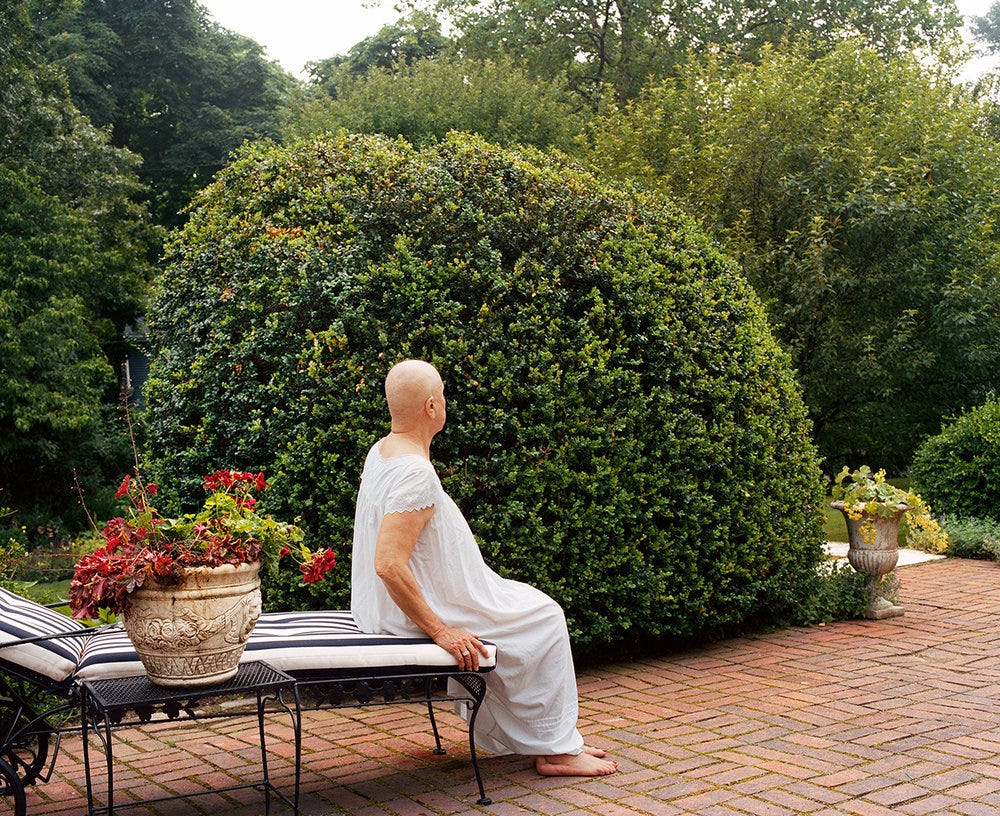
Gayle in Garden by Jocelyn Lee, 2004 (Jocelyn Lee Studio)
What I’m reading this week
A memorial to frontline health-care workers who died from COVID-19.
“Being in the middle of a story is a really hard place,” says Rebecca Solnit, author of A Paradise Built In Hell: The Extraordinary Communities That Arise In Disaster.
Why hospitals, doctor’s offices, and clinics are short-staffed during COVID-19.
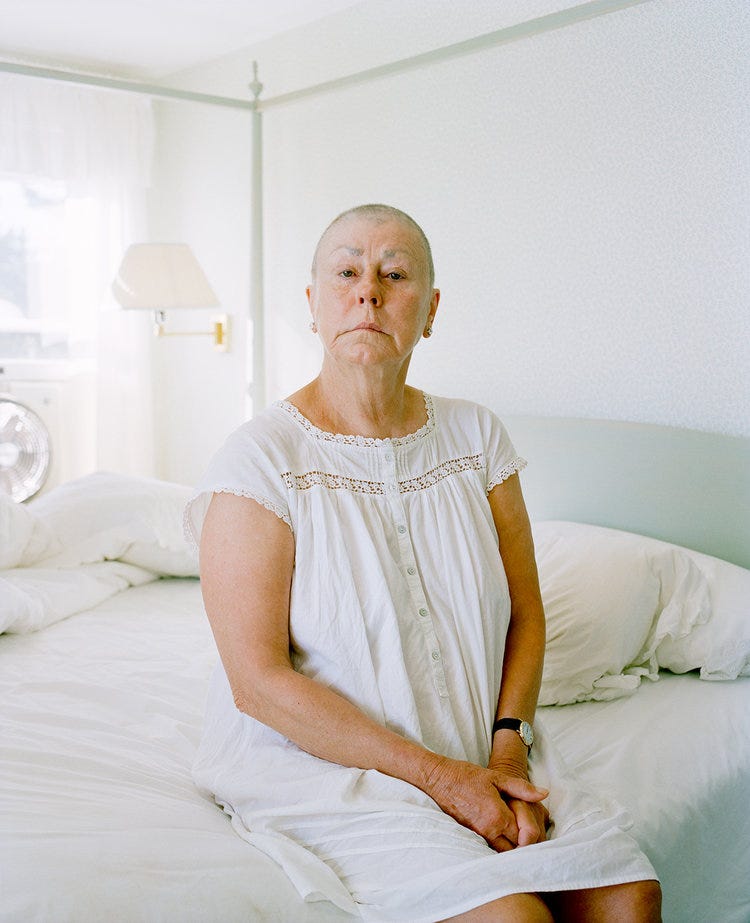
Gayle Bald in Nightgown by Jocelyn Lee, 2004 (Jocelyn Lee Studio)
One Good Resource

The Center for Complicated Grief at Columbia University educates health care workers and the general public about grief. I appreciate their evidence-forward approach to the topic of grief, which is an unusual (and, for me, more accessible) entry point to the topic. They are big on research and frameworks, and use phrases like “grief pathways” and “integrated grief” a lot.
One reason I mention it here is that they’ve published a lot of content related to COVID-19 in the last few weeks. My favorite example is this webinar, which I found to be especially valuable as a reference point for all the other news I’m consuming (and feelings I’m feeling) about the pandemic.
One Good Quote
“There’s another guy. There’s another Steve. There’s a Steve Colbert. There’s that kid before my father and my brothers died. And it’s actually kind of difficult. I have fairly vivid memories from right after they died to the present. It’s continuous and it’s contiguous, you know? There’s this big break in the cable of my memory at their death, and everything before that has got an odd, ghostly tone.”
Comedian Stephen Colbert during a long, beautiful conversation with CNN’s Anderson Cooper about grief
One Good Book
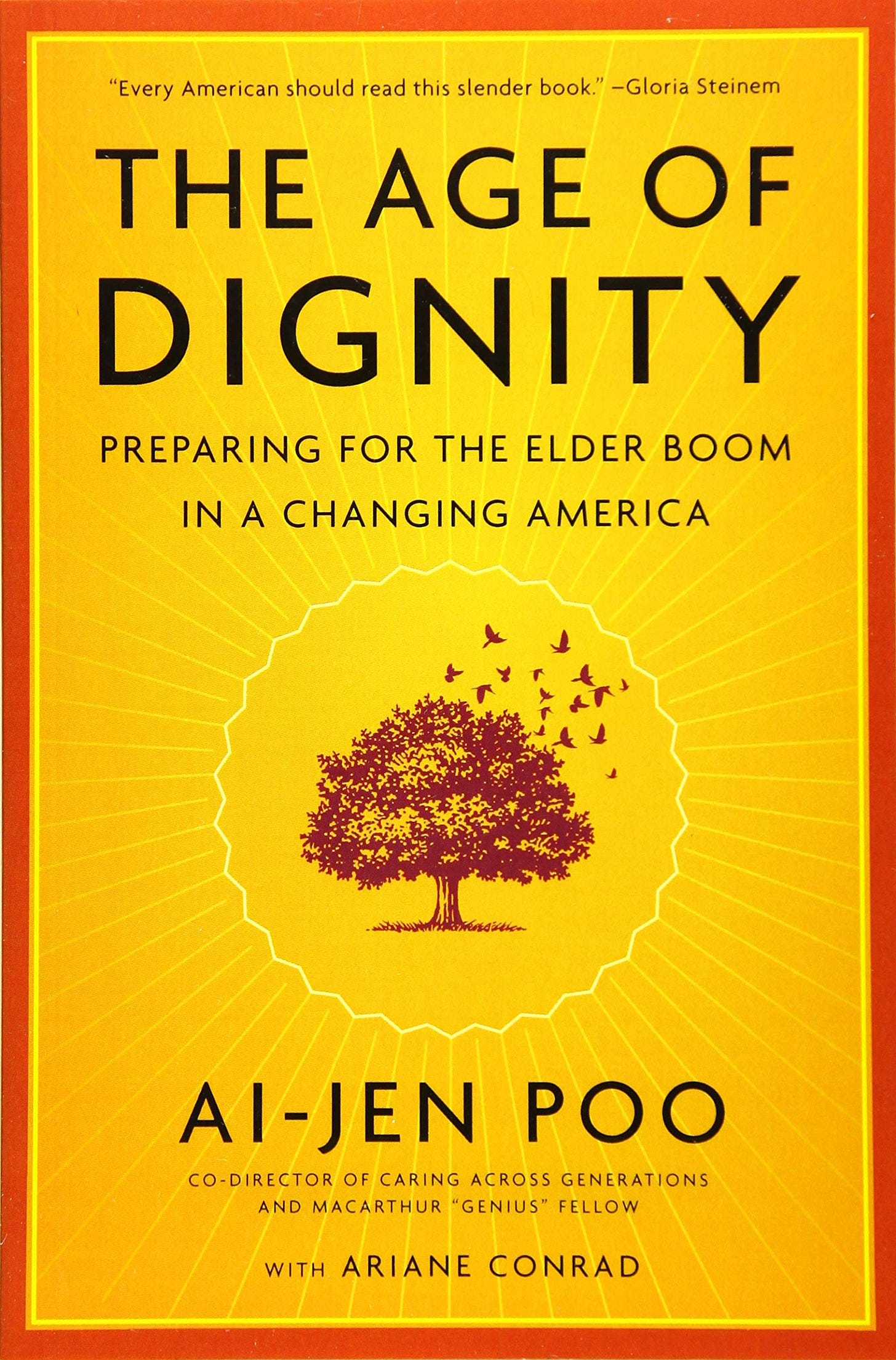
“The Age of Dignity: Preparing for the Elder Boom in a Changing America” by Ai-Jen Poo
Ai-Jen Poo is a labor activist and the co-founder and executive director of the National Domestic Workers Alliance, an organization that advocates for the rights of domestic workers like professional caregivers in the United States.
In her book, Ai-Jen explains how the elder care industry in the U.S. works today and makes several arguments for how we might improve it. She draws effectively on both interviews with professional and family caregivers and on statistics to make her points. I think the book does a great job of combining both and of showing how personal stories can be even more powerful when paired with data.
Her biggest point, in my opinion, is a cultural one: We have to start valuing caregiving more than we do. Without this crucial shift in our mindset, she argues, many of the other financial or emotional opportunities she identifies won’t even be possible.
One Good Ad
I’d love to share your business, product, or service with the people who read this newsletter. Reply to this email to get in touch.
Are you worried about your parents? I want to help. Through my business, Quilt, I offer a new kind of online support for people who care for their aging parents that includes phone or video check-ins & unlimited support over email.
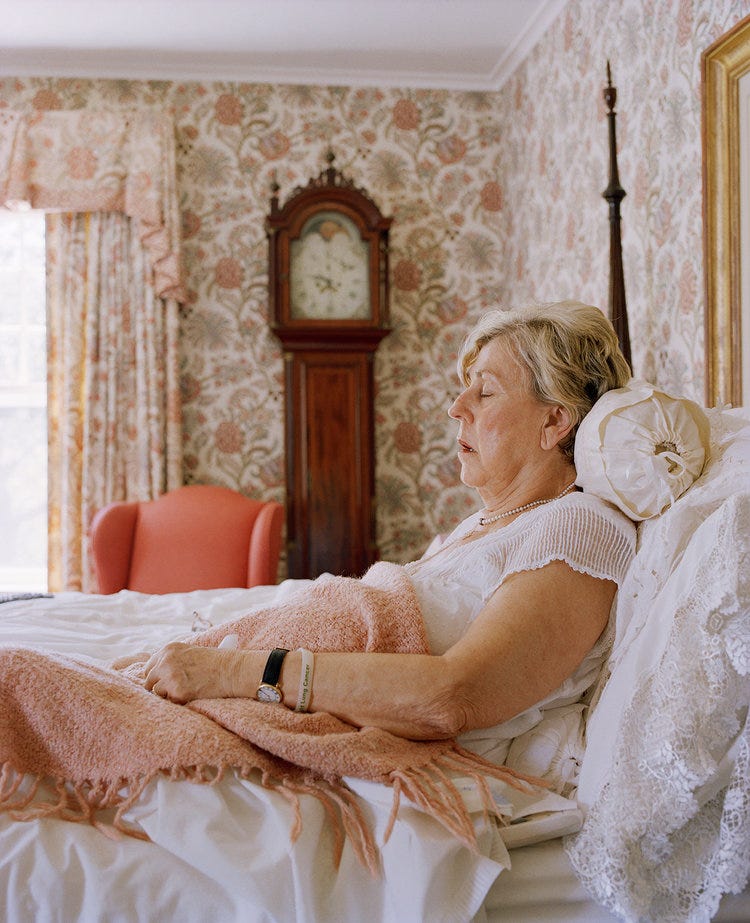
Mom in Bed by Jocelyn Lee, 2008 (Jocelyn Lee Studio)
One More Thing
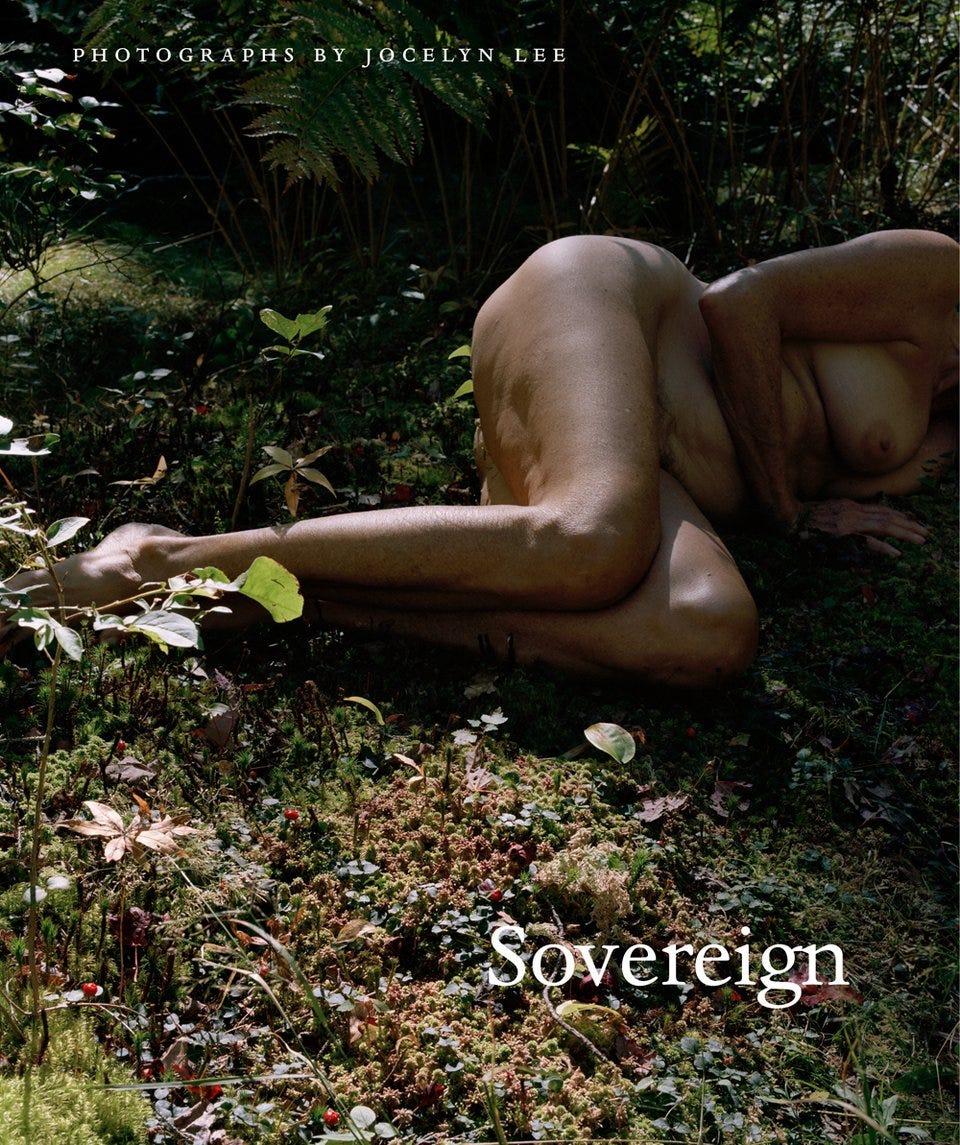
I discovered photographer Jocelyn Lee through her Instagram account several years ago. I immediately found so much comfort in her photographs – especially the ones of female bodies, with their compassion for the physical changes that come with aging. Three of her photographs are included in this issue of the newsletter (above); they each document her mother at various stages of her illness from lung cancer.
Jocelyn has recently compiled a selection of her photographs into a new book titled “Sovereign,” for which she is running a crowdfunding campaign until June 16, 2020. She is currently a little over halfway (!) toward her goal of selling 400 copies, and I encourage you to grab one if you can.



